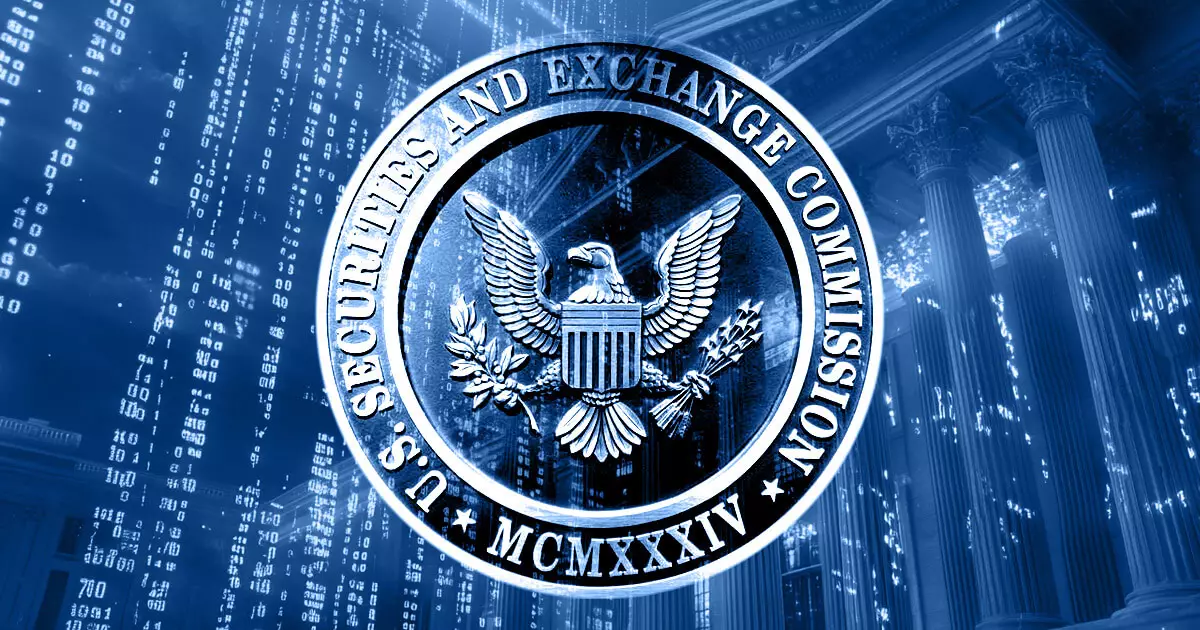In early February, the US Securities and Exchange Commission (SEC) made significant moves by acknowledging two important filings related to cryptocurrency exchange-traded funds (ETFs). The first filing concerns an amendment for Grayscale’s proposed spot Litecoin ETF, while the second pertains to BlackRock’s request for in-kind redemptions in its iShares Bitcoin ETF. This engagement from the SEC is viewed as a pivotal moment for the cryptocurrency investment landscape, as it raises expectations for possible regulatory approvals.
Analyst Eric Balchunas from Bloomberg emphasized the importance of the SEC’s interaction with these applications. His analysis suggests that the agency’s responses may indicate an increased likelihood of approval for the Litecoin ETF. Given the classification of Litecoin as a commodity rather than a security, many believe it meets the necessary regulatory criteria, thus enhancing its odds for successful approval. Balchunas speculated that a shift in leadership at the SEC could further influence regulatory attitudes toward such cryptocurrencies, suggesting a potentially evolving perspective within the agency.
The Implications of BlackRock’s Application
Alongside the spotlight on Litecoin, BlackRock’s filing surrounding in-kind redemptions for its Bitcoin ETF marks a significant transition in how digital asset funds may operate. If the SEC approves this request, investors would have the opportunity to receive Bitcoin directly instead of cash equivalents during redemption processes. This method aligns with a growing trend in the ETF arena aimed at increasing efficiency and mitigating tax implications for institutional investors.
The ability to conduct in-kind redemptions not only streamlines transactions but also addresses capital gains tax concerns that can arise when converting assets to cash. By allowing direct transfers, large-scale investors could see reduced slippage and improved liquidity. This adaptation marks a critical step forward in the organization of ETF structures in the cryptocurrency domain, potentially revolutionizing how these financial products are utilized by institutional players.
Broader Trends and Regulatory Shifts
The SEC’s recent engagement with cryptocurrency ETFs hints at broader regulatory trends within the digital asset space. As the agency prepares to consider new applications, market observers are keenly watching the implications of potential approvals, especially for ETFs based on not just Bitcoin but also altcoins like Litecoin. The possibility of multiple crypto ETF approvals debuting in a single batch could signal a structural shift in how these assets are perceived within traditional finance.
The regulatory climate continues to evolve, and as the SEC grapples with its role in overseeing digital assets, these decisions could set important precedents. The move toward considering in-kind redemptions alongside the approval of spot Bitcoin ETFs signifies a developing framework in which cryptocurrency investments might one day resemble conventional investment vehicles more closely.
The SEC’s acknowledgment of these filings represents a watershed moment for the cryptocurrency sector. With analysts projecting a more favorable regulatory environment, investors could see an enhanced legitimacy for digital assets and an expansion of investment options. The cryptocurrency market watches closely as these developments unfold, anticipating how they might shape the future of digital asset investments.
















Leave a Reply